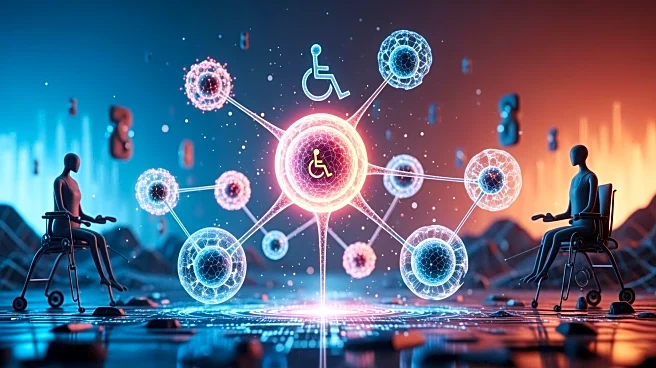What's Happening?
OpenAI has made significant improvements to its image generation model, addressing previous limitations in representing individuals with disabilities. Jessica Smith, a former Australian Paralympic swimmer, experienced challenges when using AI to generate
an image of herself, as the technology struggled to accurately depict her missing left arm. After updates to the model, Smith was able to generate a more accurate representation, highlighting progress in AI's ability to reflect diverse human experiences. OpenAI acknowledges ongoing challenges in fair representation and is actively working to refine its methods and diversify its data sets to reduce bias.
Why It's Important?
The advancements in AI image generation are crucial for enhancing representation and inclusivity in technology. For individuals with disabilities, accurate representation in AI can lead to greater visibility and acknowledgment in digital spaces. This progress reflects a broader societal shift towards inclusivity, emphasizing the importance of diverse data sets in AI development. The improvements made by OpenAI could influence other tech companies to prioritize fair representation, potentially leading to more equitable technology solutions. However, challenges remain, as biases in AI can perpetuate existing societal inequalities if not addressed comprehensively.
What's Next?
OpenAI plans to continue refining its image generation model, focusing on reducing bias and improving representation for all users. This involves expanding data sets to include more diverse examples and enhancing post-training methods. As AI technology evolves, stakeholders, including tech companies and advocacy groups, are likely to push for more rigorous testing and training to ensure fair representation. The ongoing dialogue around AI bias and inclusivity may lead to policy changes or industry standards that prioritize ethical AI development.
Beyond the Headlines
The issue of representation in AI extends beyond technology, touching on ethical and cultural dimensions. Ensuring diverse representation in AI development can help address societal blind spots and promote inclusivity. This shift requires collaboration between tech developers, cultural experts, and advocacy groups to ensure AI systems reflect the diversity of human experiences. The conversation around AI bias also highlights the need for transparency and accountability in AI development, encouraging companies to consider the broader impact of their technologies.
















